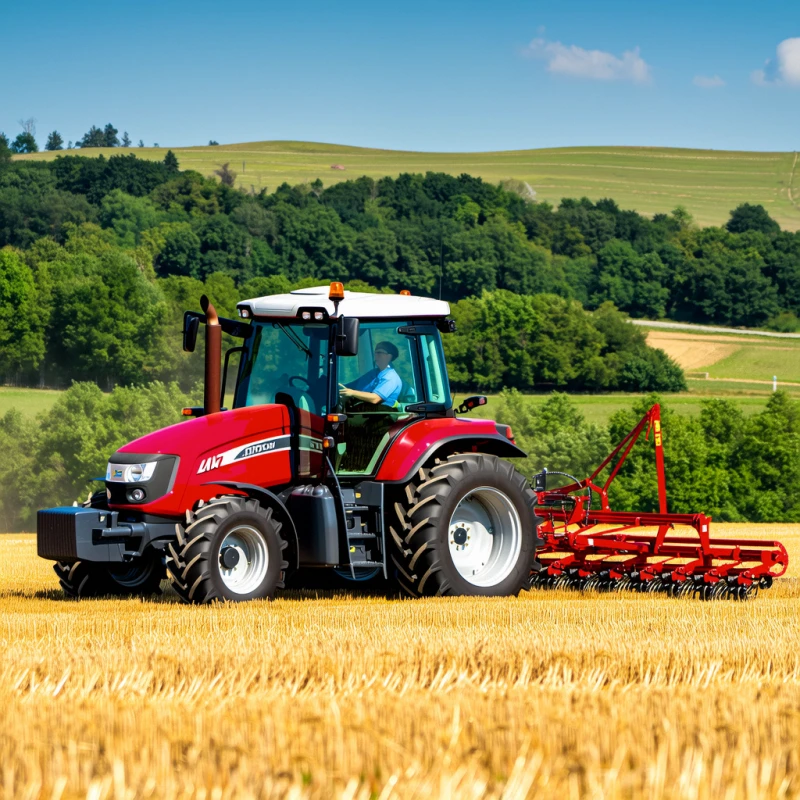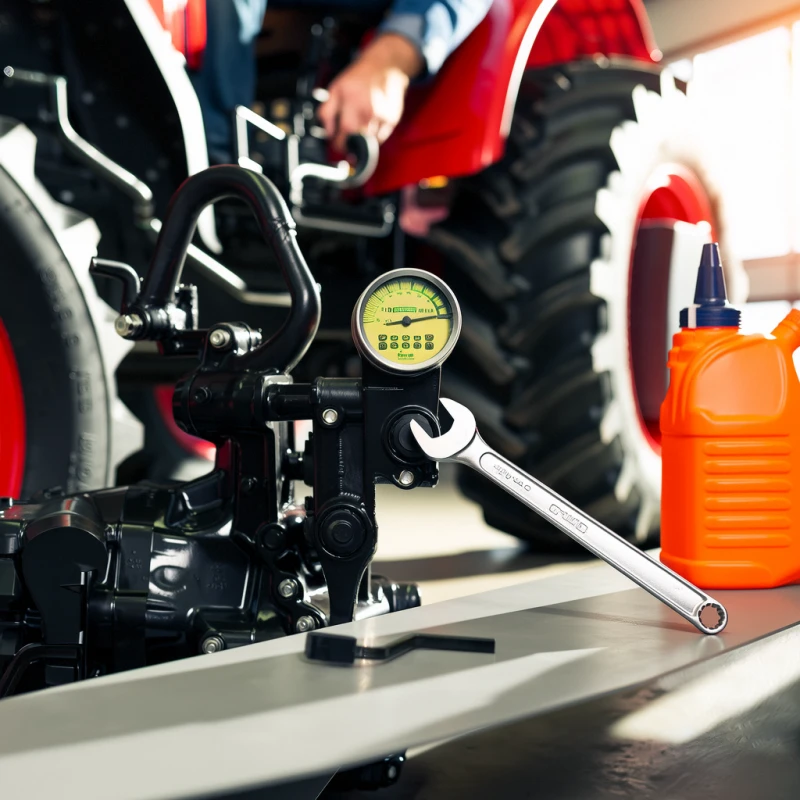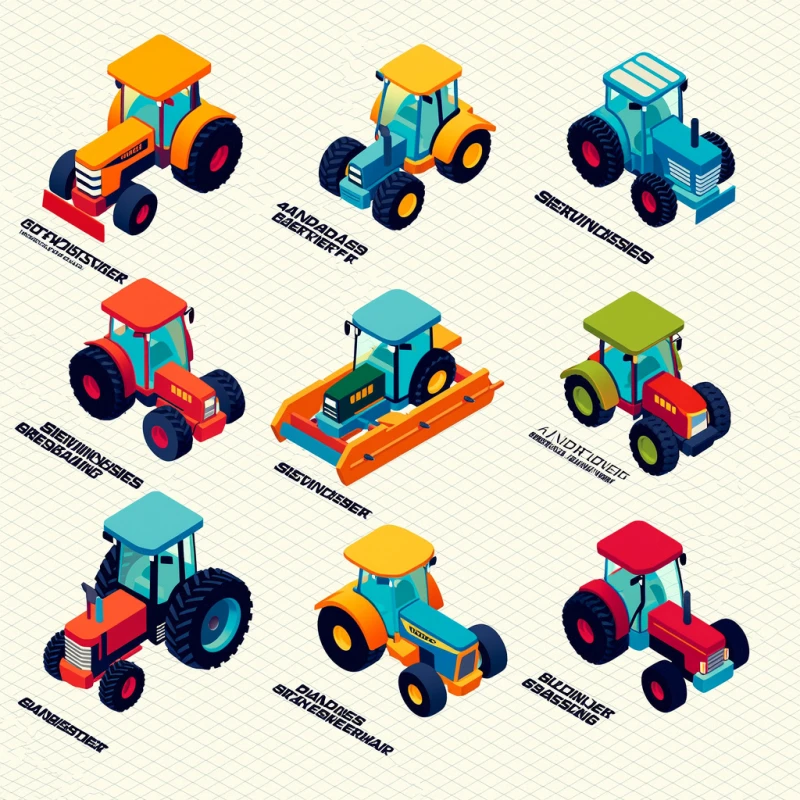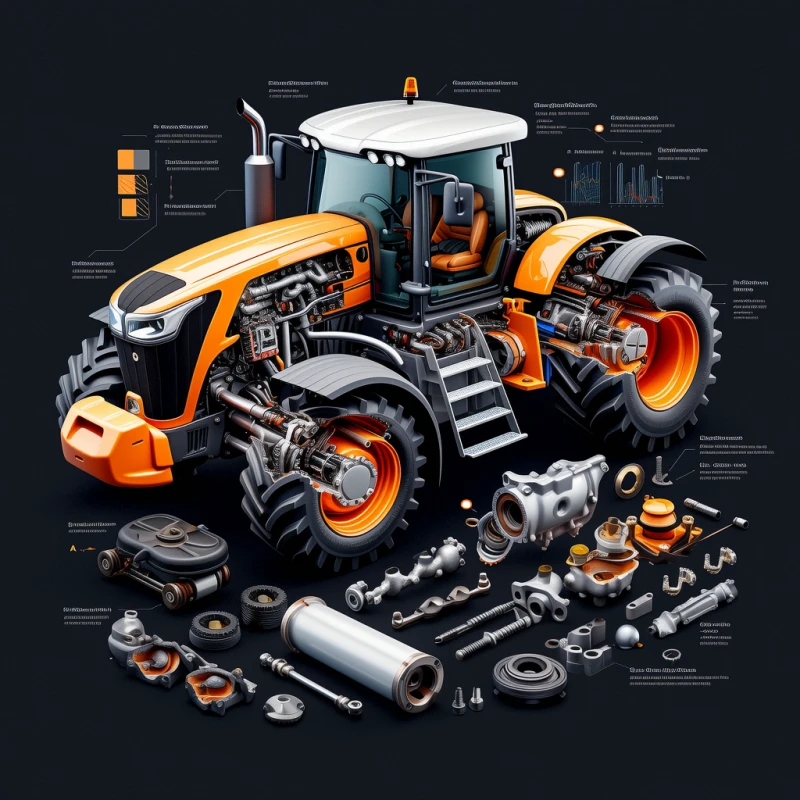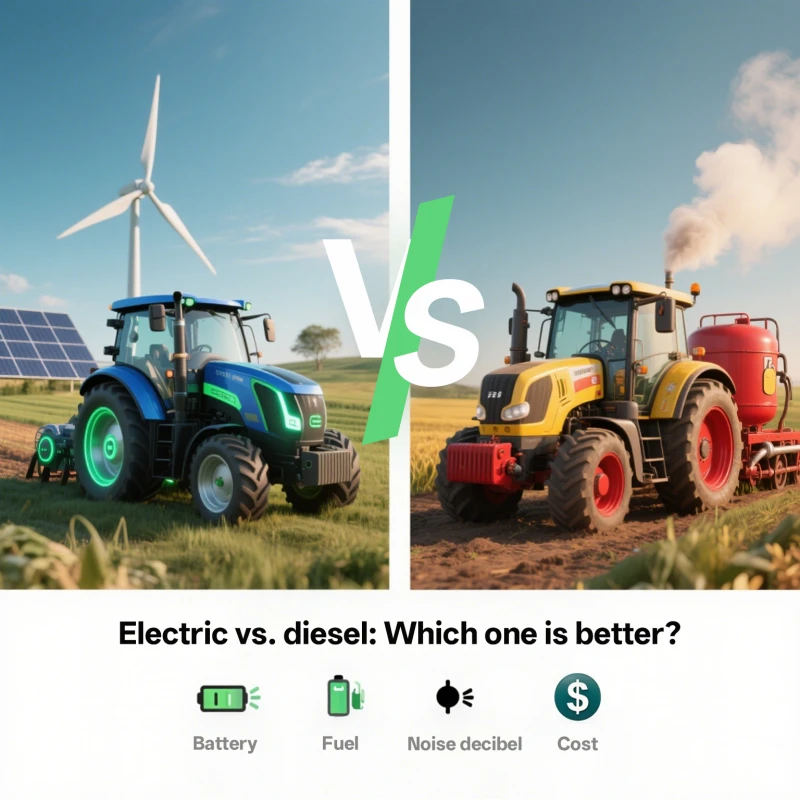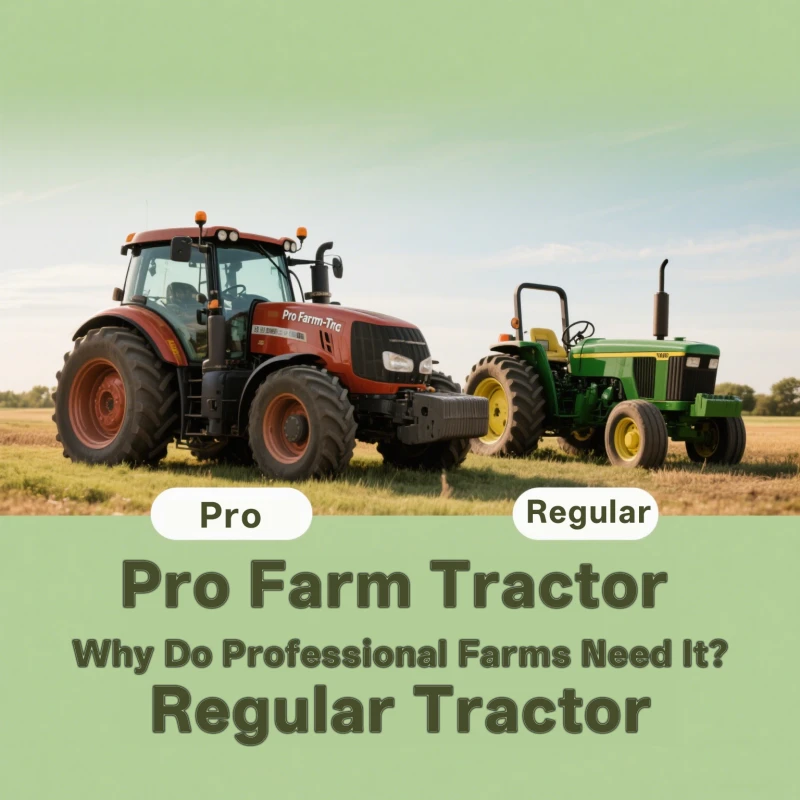1. Introduction
In modern agriculture, tractors are the heartbeat of farm operations. From tilling the soil and planting crops to harvesting and hauling, tractors perform essential tasks that directly influence productivity. However, not all tractors are created equal — and not all are suited to every farm.
Choosing the wrong tractor can lead to reduced efficiency, unnecessary wear on machinery, or increased operational costs. That’s why it’s essential to select a tractor based on a scientific assessment of your farm's size, terrain, usage needs, and budget. This article offers a structured method to help you make an informed purchase decision.
2. Assess Your Farm Needs
Before diving into specs and models, consider the basics: What does your farm actually require?
Farm Size and Matching Tractor Types
| Farm Size | Recommended Horsepower (HP) | Common Tractor Types |
|---|---|---|
| Small Farm | 25–50 HP | Compact |
| Medium Farm | 50–100 HP | Utility |
| Large Farm | 100+ HP | Heavy-duty |
Small farms typically need compact tractors for tasks like mowing, light tillage, and hauling. Medium-sized farms benefit from utility tractors, which are more powerful and versatile. Large commercial farms often require heavy-duty tractors with the strength and durability to handle large-scale row cropping and high-load attachments.
Type of Operation
| Operation Type | Tractor Feature Required |
|---|---|
| Plowing/Seeding | High traction |
| Harvesting/Transportation | Loader or rear hitch |
| Orchard/Vineyard | Narrow body design |
Your tractor’s build and power must align with your regular tasks. Plowing and seeding require strong tractive power. For harvesting or hauling, you'll need a loader and compatible hitch system. Meanwhile, orchards and vineyards demand narrow tractors that can fit between tight rows.
Terrain Conditions
Flat land: Standard tires and moderate horsepower work well.
Hilly areas: Require higher torque and possibly four-wheel drive.
Rocky or uneven soil: Needs durable tires and high clearance.
3. Key Specifications
When evaluating a tractor, pay special attention to the following technical specs:
Horsepower (HP)
25–50 HP: Ideal for small farms and light-duty tasks.
50–100 HP: Good for medium farms and more intensive operations.
100+ HP: Suitable for large farms or commercial use.
Transmission Type
Manual Transmission: More affordable, suitable for experienced operators.
Hydrostatic or Hydraulic Transmission: Offers smoother, easier control, especially for beginners or tasks requiring frequent speed adjustments.
Power Take-Off (PTO)
A crucial component, the PTO allows your tractor to power external equipment such as mowers, balers, or sprayers. Make sure PTO horsepower matches your intended implements.
Hydraulic System Capacity
A higher flow rate improves the performance of accessories like loaders, buckets, and backhoes. This is especially important for farmers who rely heavily on hydraulically driven tools.
4. Tractor Type Comparison
There are several common tractor categories, each serving specific purposes:
Compact Tractors: Best for small-scale gardening, landscaping, and small farms. Easy to maneuver and economical.
Utility Tractors: Mid-sized and versatile, they’re suitable for plowing, mowing, hauling, and more. A top choice for mid-sized farms.
Heavy-Duty (Row-Crop Tractors): Designed for large-scale, high-yield row crop farms. These machines offer powerful engines, advanced suspension, and high hydraulic capacity.
Specialty Tractors: Includes narrow-body orchard models, mountain tractors for steep terrain, and more.
5. New vs. Used Tractors
Advantages of New Tractors
Manufacturer warranty
Advanced technology (fuel efficiency, GPS navigation, etc.)
Minimal risk of breakdown
Advantages of Used Tractors
Lower initial investment
Good option for startups or occasional use
Pitfall Avoidance Tips:
Always request a test drive.
Check maintenance records for consistency.
Inspect engine condition, hydraulic fluid levels, and tire wear.
Avoid machines older than 15 years unless thoroughly refurbished.
6. Budget & Top Brands
Price Ranges by Size
| Tractor Size | Typical Price Range (USD) |
|---|---|
| Small | $15,000 – $50,000 |
| Medium | $50,000 – $100,000 |
| Large | $100,000 – $200,000+ |
Recommended Brands
Economy: Mahindra, Kubota – affordable, reliable, widely used.
High-End: John Deere, Case IH – premium performance, longevity, cutting-edge tech.
Durability: Zhenith Tech – Durable and price-friendly. Massey Ferguson – known for solid engineering and long-term durability.
Zhenith’s production power isn’t just impressive in scale—it’s efficient. Their production cost is 15-20% lower than the industry average, and that savings trickles down to competitive pricing. Meanwhile, the brand’s presence in over 50 countries shows their commitment to global adaptability.
Be sure to evaluate dealer support in your area, as this can heavily influence maintenance convenience and spare parts availability.
7. Test Drive and Purchase Suggestions
Before signing any contract, conduct a thorough test drive:
Handling: Check how well it turns and navigates tight spaces.
Visibility: Make sure controls are visible and accessible.
Noise & Vibration: Excessive engine noise or vibration can be a red flag.
Comfort: Test the seat, suspension, and overall ergonomics—especially if you'll be using it for long hours.
Consider After-Sales Support
Good after-sales support includes:
Local servicing availability
Readily available spare parts
Responsive customer support
Consider Long-Term Operating Costs
Think beyond the purchase price:
Fuel efficiency: Major cost factor over time
Maintenance: Parts and service frequency
Resale value: Well-maintained tractors retain good resale value
8. Conclusion
Choosing the right tractor is a balancing act between farm size, task requirements, budget, and long-term dependability. A compact machine may be ideal for one user, while another may need a powerful row-crop model. By aligning your purchase with your operational needs and financial situation, you'll ensure maximum productivity and long-term satisfaction.
Have experience with a particular model or brand? Questions about a specific use case? Feel free to share your thoughts or ask in the comments below!
If you want to buy a tractor, please click here to leave a message.

